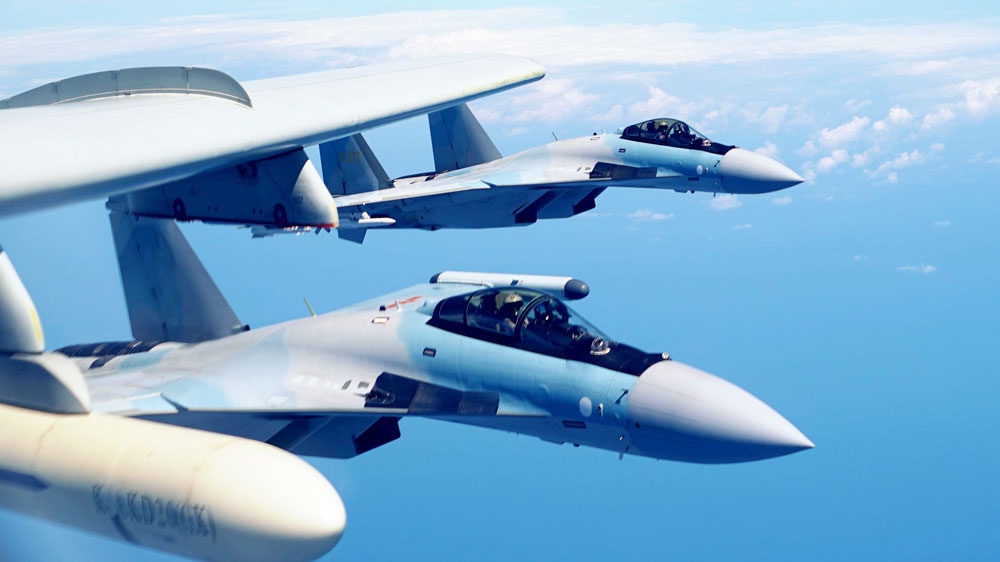Defence minister says ‘no force’ can stop China reunification
Defence minister Wei Fenghe tells security forum that resolving ‘Taiwan question’ is China’s greatest national interest.

China’s defence minister said on Monday that resolving the “Taiwan question” was China’s greatest national interest, and that no force could prevent the country’s “reunification”.
Separatist activities were doomed to failure, Defence Minister Wei Fenghe said at the opening in Beijing of the Xiangshan Forum, which China styles as its answer to the annual Shangri-La Dialogue security forum in Singapore.
Keep reading
list of 3 itemsPeople’s Republic of China: From Mao to now
China silences critics by denying access to its economy
|
|
Tensions between China and Taiwan have ratcheted up ahead of a presidential election on the island in January.
“China is the only major country in the world that is yet to be completely reunified,” Wei said.
“Resolving the Taiwan question to realise China’s full reunification is the irresistible trend of the times, China’s greatest national interest, the righteous path to follow and the longing of all Chinese people.”
Beijing sees Taiwan as a renegade province that needs to be retaken by force if necessary, a message President Xi Jinping reiterated at the start of this year.
South China Sea claim
Proudly democratic Taiwan has lambasted China for its authoritarian rule and for being a threat to regional peace.
Defeated Nationalist forces fled to Taiwan in 1949 at the end of the civil war that led to the founding of the People’s Republic of China.

China has also been angered by support given by the United States to Taiwan, including arms sales.
Washington has no formal ties with Taipei, but is bound by law to provide the island with the means to defend itself.
The US and China are also locked in a bitter trade war, but are in talks to end the dispute.
“No one and no force can ever stop China’s full reunification. We are committed to promoting the peaceful development of cross-Taiwan strait relations and the peaceful reunification of the country,” Wei said.
|
|
“However we will never allow separatists for Taiwan independence to have their way, nor allow interference by any external forces. Advancing China’s reunification is a just cause, while separatist activities are doomed to failure.”
The US has also angered China by repeatedly conducting what it calls “freedom of navigation” operations by naval ships close to islands China occupies in the South China Sea.
China claims the entire South China Sea, but Brunei, Malaysia, the Philippines, Taiwan and Vietnam, which surround the strategic waterway, also have claims.
“The South China Sea islands and Diaoyu islands are inalienable parts of China’s territory. We will not allow even an inch of territory that our ancestors have left to us to be taken away,” Wei said.
Meanwhile, Vietnamese Prime Minister Nguyen Xuan Phuc accused Beijing of complicating the situation in the disputed South China Sea as he vowed the Hanoi government will never give any territorial concessions.
|
|
“The situation in the South China Sea has become increasingly complicated recently,” Phuc told nearly 500 deputies during the eighth session of the National Assembly, which began on Monday.
“This is due to serious violations of Vietnam’s seas, which break international law and go against the Declaration on the Conduct of Parties (DOC) and top-level consensus (between Vietnam and China).
“Our party and state have consistently stated that what belongs to our independence, sovereignty, and territorial integrity, we will never give in,” Phuc said at the meeting.
Oil and gas exploration in the South China Sea is a highly fraught issue in both China and Vietnam, which saw a series of violent disputes between 1974 and 1988 over control of the Spratly and Paracel Islands.